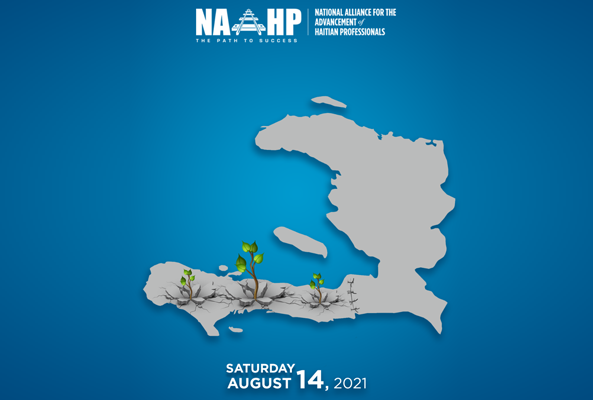The Dichotomy of Dessalines
Last month we presented some 10 fun facts about Toussaint L’Ouverture, and we know many of you were waiting breathlessly to hear about Jean-Jacques Dessalines, the first ruler of Haiti after its independence. As with the revolutionary leader Toussaint, and his successor Henri Christophe, Dessalines’ life and choices contain nuances that were controversial in that time, as well as today.
- Jean-Jacques Dessalines was twice enslaved. Under his white masters, his last name was Duclos, and after he was sold to a free black man, Jean-Baptiste Dessalines, his last name became Dessalines. According to the historian, Dr. Bayyinah Bello, Dessalines had various nicknames as he grew up: Jean, Jacques, Romulus, and more.
- Dessalines initially fought alongside Toussaint, not for the cause of independence of the island from France, but rather for the abolition of slavery.
- Dessalines briefly defected from L’Ouverture’s side to fight on the side of the French descendants, the mulattoes that he saw as enemies. This period of his life is controversial as well, and some see a direct link between that and Toussaint’s captivity in France.
- After Dessalines rose to power, he provided housing to his former black master who had given him his freedom.
- Catherine Flon, his goddaughter, was the seamstress commissioned to create the first Haitian flag.
- Despite proclaiming freedom from French colonialism, Dessalines required the black population to support the nascent regime through forced labor or through military service. Meanwhile, he had no choice but to appoint mixed-race Haitians to some leadership posts because they were most likely to be have an education, or at least, to be literate.
- Dessalines was the second husband of Marie-Claire, the Haitian widow of a French man. She tried to create a middle ground, in order to mitigate her husband’s brutal hostility toward white and mixed-race Haitians. Nevertheless, Dessalines’ fear of a resurgence of French rule led him to make bloody decisions in order to consolidate his power.
- The constitution under Dessalines was nuanced, revoking freedoms that existed under Toussaint, but also granting special rights to certain constituents. Among the highlights:
- Haiti was founded as a military state, not as a democracy, and the generals governing each division was only accountable to Dessalines himself, or to his delegate.
- Freedom of religion was restored, and the notion of private property was upheld.
- Parents were barred from disinheriting their children; an individual could be disenfranchised for falling into bankruptcy.
- White men, even Haitian-born, were specifically excluded from having property rights. However, white women and their children, mixed-race or not, were singled out for special protection, as were naturalized Haitians of German and Polish descent.
- Unlike other emperors of the time, Dessalines expressly disavowed a desire to conquer other lands or other colonies.
- After Dessalines’ assassination and dismemberment, he was given a proper burial thanks to a woman named Dedee Bazile, who was rumored to be a madwoman.
- The Haitian National Anthem, which is named after Dessalines, was chosen as the winning song in a competition to celebrate the centennial anniversary of Haiti’s independence.
No nation-builder in history is without flaw, but they all provide a cautionary tale for how we choose to behave in our times.
For further reading, visit:
- http://faculty.webster.edu/corbetre/haiti/history/earlyhaiti/1805-const.htm
- http://kreyolicious.com/100-women-of-haitian-history-1-marie-claire-heureuse-dessalines-empress-of-haiti/12860/
- https://books.google.com/books?id=2mJB8hZzjxIC
- https://en.wikipedia.org/wiki/Catherine_Flon
- https://www.youtube.com/watch?v=fqdhtoi_ZgM
- https://thelouvertureproject.org/index.php?title=D%C3%A9d%C3%A9e_Bazile

 English
English Français
Français Donate
Donate Partner
Partner Shop
Shop Login
Login









